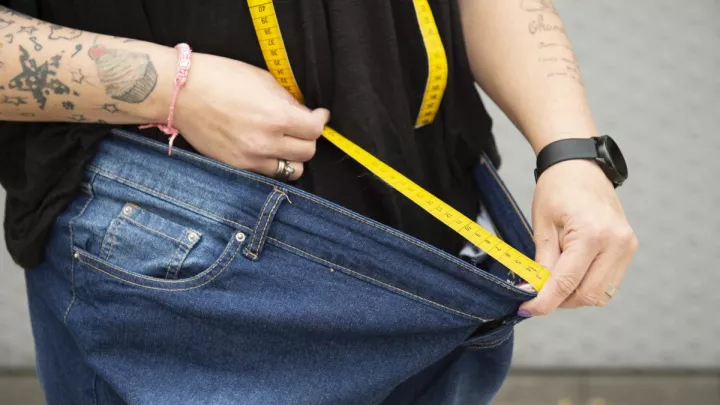She lost the weight – and kept it off

She says, "I kept getting depressed. I couldn't even run around and play soccer with my kids. I wanted not to get tired walking up a flight of stairs." At more than 300 pounds, she decided bariatric surgery would help her feel healthier and have more energy. "I knew there had to be something better. This could not be what my life was supposed to look like."
Getting ready for long-lasting change
The work doesn't start with surgery – it starts long before, with an intensive program. "You can't fix the outside without fixing the inside," says McDowell.
The Nebraska Medicine preoperative program includes consulting with dieticians, psychologists, nurse coordinators, physician assistants and doctors. Participants give up coffee and soda and find an exercise plan that works for them. They also take classes on healthy eating and portion identification. It takes weeks or months to adjust those habits so that once the surgery is over, the weight stays off.
McDowell says, "Nothing exciting happened – I just did the work. I went to my appointments, exercised and ate right. Which is hard because I have young kids!" Now she makes a lot of Pinterest dinners, like ginger chicken and sesame broccoli. "Not a lot of kids eat broccoli or Brussels sprouts. My kids actually love them and eat all kinds of things now."
McDowell is a talented pastry chef and had to get inventive about removing temptation. "Sometimes I'd accidentally, yet on purpose, bake a cake for my kids. If they didn't finish it, I'd put the cake in the sink and run water over it." She also stayed on track by not buying ice cream or junk foods. "I tell myself and others, ‘If you don't buy it, you can't eat it. If it's not in your house, you're good.'"
McDowell's bariatric surgeon, Corrigan McBride, MD, credits McDowell for sticking with it. "Weight loss is a team sport. The patients do a monster share of the work. They change how they shop for groceries, which restaurants they eat at and how often they work out," Dr. McBride says. "Maysa's done extremely well. She lost almost 5% of her body weight even before the surgery. She embraced this from the beginning."
"The surgery is a chance at a new life, but it's not magic. You have to go to the gym," says McDowell. She started going to the gym regularly and still works out by lifting weights and running.
By helping patients drop the pounds, a whole host of problems can be taken care of. Dr. McBride says, "One mentor always said to me, ‘You get to perform the only operation in the world that can cure five diseases.' Diabetes, sleep apnea, high blood pressure, heart disease and gout can all be mitigated or eliminated with weight loss surgery."
A surgeon who's been in patients' shoes
Dr. McBride has been performing bariatric surgeries for almost 20 years. Unlike most bariatric surgeons, Dr. McBride has undergone weight loss surgery herself – twice. This experience makes her uniquely qualified to understand exactly what patients are going through.
"Having been through the process has made me a better advocate for patients," says Dr. McBride. "My job is to help patients pick the right bariatric surgery for them. When I had my first procedure – gastric band surgery – I was single. I really wanted to get married and have a baby. In 2004, the lap band was thought to be the safest operation for future pregnancies, so that is why I chose it. I help patients determine the best surgery for their own priorities and lives."
The morning of the surgery, McDowell was nervous and scared, but also excited. She knew the surgery held so much potential for her life. She says, "To me, strength is someone taking the chance of making themselves better. That's powerful. I've seen so many people get scared of surgery's small potential for complications, and I wonder, ‘Is it worth being fat for the rest of your life?'"
Her hard work paid off
"One of the reasons I love my job is seeing the difference in people's lives," says Dr. McBride. "Before the surgery, people often want to do it for their health or to decrease the number of pills they have to take. About six months after the surgery, that's all ancient history, and they've completely forgotten they're not on insulin anymore. It's the day-to-day, minuteto-minute, quality-of-life things."
"Everyone has their epiphany moment," says McDowell. "Mine was after I got back to my high school weight of 220 pounds. We went to Worlds of Fun, and I fit in the seat exactly. I thought, ‘I made it! I fit in the chair!' I was so happy I cried."
Since the beginning of her journey, McDowell has lost 185 pounds and is so happy she's come so far. "I can run without getting tired now," she says. "That's amazeballs to me."
The Nebraska Medicine Bariatrics Center offers weight loss surgery as well as medical weight loss plans. To get more information, visit NebraskaMed.com/Weight-loss





